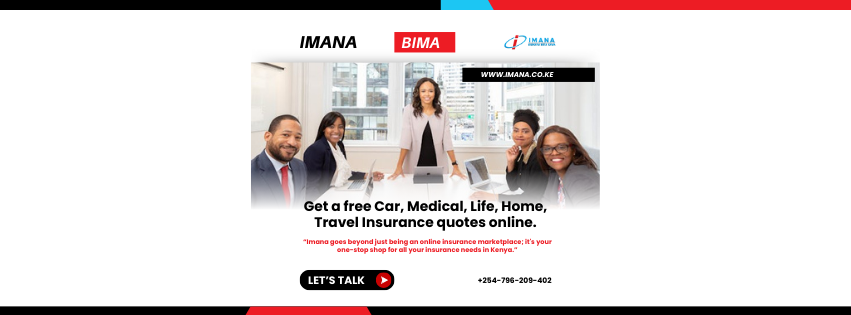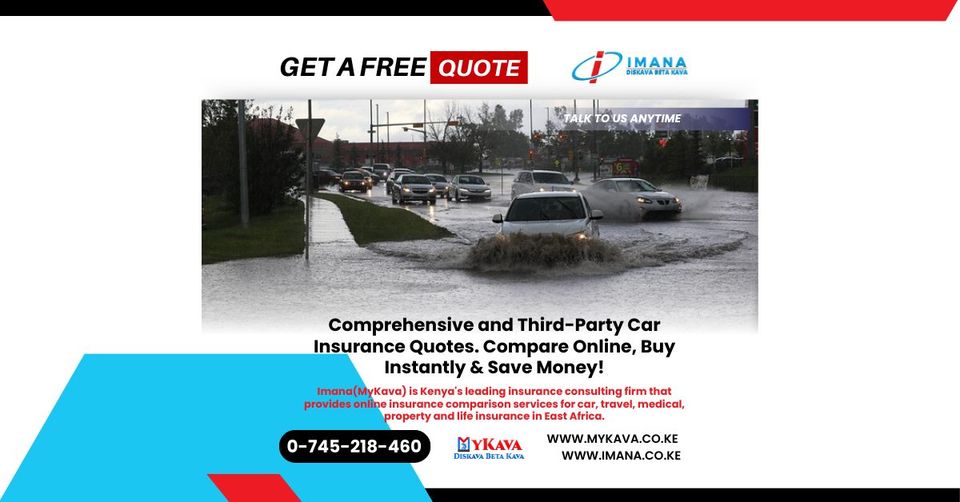
- Author: Raymond
- Category: Insurance in Kenya
Avoid this mistakes when buying Insurance:
Never shop based on price alone whether you’re insuring your house, car or yourself...
Buying insurance can be confusing, but when the unexpected happens – a house fire, a fender bender or a broken bone – it's a relief to know that some of those financial losses will be covered. But how do you know how much coverage you need? And what questions should you ask before buying a policy? Many consumers aren't sure. Insurance coverage is far from one size fits all, so here's a look at mistakes some consumers make when buying insurance.
1. Assuming insurance is out of reach.
96% of Kenyans have no life insurance according to LIMRA, a worldwide research and consulting organization for insurance and financial services. In some cases, consumers skip insurance because they think it's out of their budget. Often, that's not the case, the average consumer thinks life insurance is three times more expensive than it actually is.
When buying health insurance or property and motor insurance, ask about potential discounts. Two-thirds of consumers don't realize they can get financial help if they buy their own health insurance, and they can get financial help if they go and buy in these health insurance insurance companies. You may be way overpaying if you don't investigate this possibility or compare prices before buying. While health insurance discounts are often income-based, homeowners and auto insurers offer discounts for everything from being a member of groups like AA, to being a good driver or accident free, to having a home security system.
2. Relying on assumptions or outdated figures.
Changing economic conditions mean you might need more insurance coverage than you had in the past. Take life insurance. In the past, consumers might have based their life insurance coverage on their current income, but if something happens and you're no longer around, you need more capital at work to provide the same income to your beneficiaries.
Disability and long-term care insurance are even more complicated than traditional life insurance. For disability, do you want coverage that lasts forever? Are there health issues in your family? These are expert quesitions. That's where you need to speak to somebody to get some guidance.
In the case of homeowners insurance, your home could be underinsured if you've renovated or if the cost to build a home has increased due to higher material costs or other factors. That's why experts recommend reviewing insurance coverage once a year to make sure it still fits your needs. Talk to your insurance agent if you're unsure.
3. Shopping on price alone.
Comparing insurance policies can be confusing, but resist the urge to simply choose the policy with the lowest premium. Consider the company's reputation and the coverage you'd get for that premium. As a general rule with health insurance, the higher the premium, the lower the amount you pay when you go to the doctor. Private health insurance plans must provide coverage examples showing what your estimated out-of-pocket costs would be for, say, having a baby or managing diabetes. Some examples might not apply to you, but they can help you compare plans and see how much you might pay in coinsurance and copays.
Make sure you're shopping apples to apples and getting quotes based on the same coverage that you have. Your property and casualty insurance may not cover things like food spoilage in the event of a power outage or stolen electronics, so you may want to purchase extra endorsements to cover those possibilities.
With disability or long-term care insurance, prices can vary depending on the length of the elimination period – the amount of time you must wait before coverage kicks in – and whether the policy includes inflation protection, so consider these factors, too.
4. Glossing over the details.
Make sure you understand what your insurance policy covers. For health insurance, it's cheaper to see doctors who are in-network and buy prescription drugs covered by the formulary, so I suggest checking to see if your doctor is in-network and if your prescription drugs are covered before you buy a policy. Otherwise, you could get an expensive surprise.
Read your insurance policy and contact your insurance agent if anything is unclear. Unfortunately, a lot of people don't find out what coverage they should have had until they have a loss. Some people don't know that flooding is not covered under a regular homeowners insurance policy. Some dont know that Political Violence and Terrorism is not covered in the main motor comprehensive policy. However, you can usually buy a separate flood insurance policy or an optional PVT cover on top of the main policy. Many people get to understand this when a claim is declined.
5. Setting your deductible too low.
Setting a low deductible typically means higher premiums, and in the case of property and casualty insurance, a greater likelihood of small claims that could ultimately raise your premiums. Insurance is designed to protect against losses you could not cover yourself, so if you can afford to pay the first Ksh.5,000 or Ksh.10,000 in losses yourself, you may not need a lower premium. Consider your own financial situation. How much of the risk are you willing to assume before you make a claim and the insurance company pays on your claim? You really have to think about how much of that loss you could pay yourself.
Remember you can always talk to us about any questions you might have about your policy document.
Imana Insurance Agency Kenya Ltd
Westlands, Woodvale Grove, Krishna Centre 4th Floor
Telephone: +254796209402
Email: insurance@imana.co.ke
Website: https://imana.co.ke/



